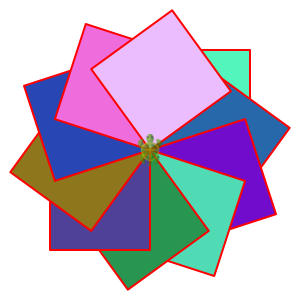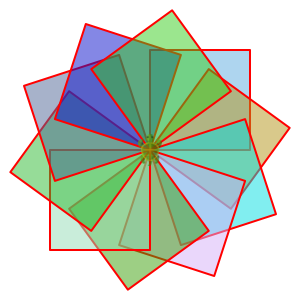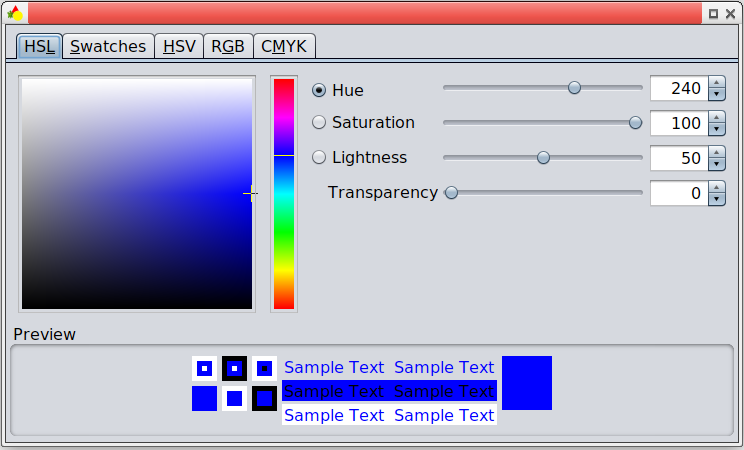You can use colors in Kojo in the following ways:
Random Colors
Wherever a color is needed in your program, you can use the randomColor function. For example:
clear()
setSpeed(fast)
repeat(10) {
setFillColor(randomColor)
repeat(4) {
forward(100)
right(90)
}
right(36)
}

If you are making overlapping figures (like in the drawing above), you can make your random colors transparent by using the randomColor.fadeOut(fraction) function. The fadeout fraction is a value between 0.0 and 1.0. A fadeout of 1.0 means that the random color is totally transparent, while a fadeout of 0.0 means that the random color is totally opaque. Values betwen these extremes let you control the effect that you want:
- a fadeout of 0.9 gives you a highly transparent color
- a fadeout of 0.1 gives you a slightly transparent color
- a fadeout of 0.5 gives you a medium transparent color
clear()
setSpeed(fast)
repeat(10) {
setFillColor(randomColor.fadeOut(0.5))
repeat(4) {
forward(100)
right(90)
}
right(36)
}

Predefined Colors
Here’s a list of all the predefined ColorMaker colors.
Custom Colors
Once a predefined color has been used in the script editor, you can Ctrl+Click on it to bring up the color chooser:

In the color chooser, you can adjust the hue, saturation, lightness, and transparency of your desired color:
- Choose the basic color (a number between 0 and 360) via the Hue slider. 0 is red, 120 is green, 240 is blue, and 360 is again red.
- Add gray to this color via the Saturation slider. 100 is the pure color; 50 is half color and half gray; 0 is fully gray.
- Add white or black to the color via the Lightness slider. 50 is the pure color; numbers greater than 50 add more and more white. Numbers less than 50 add more and more black.
- Increse the transparency of the color via the Transparency slider.
Color Gradients
Todo